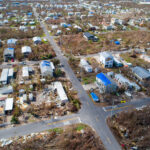A.M. Best Europe – Rating Services Limited has assigned a financial strength rating of ‘B++’ (Good) and an issuer credit rating of “bbb” to Bahrain’s Takaful International Company BSC (TIC), both with stable outlooks. Best said the ratings of TIC “reflect its sound domestic profile, satisfactory risk-adjusted capitalization and sound track record of technical profitability.” However, Best also noted that the “ratings are tempered by the weaker overall earnings of the company, its higher risk investment portfolio, unsophisticated enterprise risk management (ERM) and the country risk associated with Bahrain.” Best said: “TIC wrote gross contributions of BHD 17.1 million [$35.35 million] in 2011, or 10 percent of the market total, ranking it as the third-largest insurer in Bahrain.” In addition Best noted that despite operating in a small Bahraini market, “TIC has continued to deliver growth, with contributions expanding around 5 percent in 2011.” Although there is strong competition in the market, Best said it “expects TIC to be able to defend its local position, leveraging off of its position as a provider of Islamic compliant insurance” best has also assessed the capitalization of TIC on a consolidated basis (shareholders and policyholders’ funds) in line with the Takaful insurance companies’ methodology.” The analysis concluded that “TIC’s risk-adjusted capitalization is considered satisfactory and supportive of its secure ratings. However, the company’s capital position has weakened slightly due to contribution growth, which has outpaced its internal capital generating ability.” Best explained that even though “TIC’s track record of technical profitability is sound, with a positive balance recorded on both the life and non-life technical accounts in each of the last five years, its overall earnings are considered to be fairly weak as a result of the low contributions from its investment returns. In the short-to-medium term, these factors are likely to remain unchanged; and thus, a weakening trend in risk-adjusted capitalization is likely to persist. However, management has indicated that they expect a capital injection in the short to medium term to support growth plans.” Best also said: “Given that TIC is an Islamic compliant insurance company, it is subject to various restrictions with regard to investments,” which Best has acknowledged. As a result the company is significantly exposed to unlisted, non-liquid investments such as private equity, which are difficult to value and more prone to value shocks. TIC’s ERM remains unsophisticated, although its relatively low risk profile helps mitigate risks somewhat.” Going forward, Best said it “expects TIC to develop its risk framework further and reduce reliance on reinsurers for expertise.” The ratings also incorporate the perceived country risk associated with Bahrain,” which, Best said, it rates as a Country Risk Tier 3 country, “reflecting its high political risk and moderate economic and financial system risk. Positive rating movements are considered unlikely at present. Negative rating movements may occur should risk-adjusted capitalization deteriorate faster than expected or should the planned capital injection not materialize in line with Best’s expectations.”
A.M. Best Asia-Pacific Limited has upgraded the issuer credit rating (ICR) to “bbb+” form “bbb” and affirmed the financial strength rating of B++ (Good) of the Philippines Malayan Insurance Co., Inc. (MICO, both with stable outlooks. Best explained that the ICR upgrade “reflects MICO’s solid risk-adjusted capitalization, prominent business profile in the Philippines market and its consistently favorable investment performance.” Best also noted that “MICO’s capital and surplus has registered healthy growth since it was initially rated by A.M. Best in 2005. MICO’s risk-based capitalization level, as measured by Best’s Capital Adequacy Ratio (BCAR), also has been on an upward trend over the years.” In addition Best pointed out that the “company’s capitalization level remained solid in 2011, despite its recent loss from the Thailand flooding.” Best said it “expects that MICO will maintain its robust capitalization level to support its current ratings in the near term. Being in business for over 80 years, MICO has established a strong brand name and distribution network in the Philippines. During the last four decades, the company has maintained its position as the largest Philippines non-life insurer in terms of gross premiums written.” Best said the “investment portfolio has been an important income source for MICO. The company has consistently posted sufficient investment income to offset its underwriting deficit and deliver a net profit every year for the past five years.” Best therefore “expects that the company’s investments will continue to make an important contribution to its bottom line going forward.” A primary offsetting factor is “MICO’s unfavorable underwriting results,” Best said. The report explained that the company’s “underwriting performance has not been satisfactory in the past five years, primarily due to its high expense ratio relative to regional peers. The company’s underwriting results in 2011 and 2012 also have been impacted by its losses from the Thailand flooding. To improve its underwriting performance, MICO has further tightened its underwriting policy, especially on its inward foreign treaty. Management also is committed to increasing employee productivity as a means to lower its expense ratio. In conclusion Best said that “future upward rating movements could occur if MICO demonstrates a significant improvement in its underwriting performance. Conversely, negative rating movements could occur if there is a material decline in MICO’s risk-based capitalization level.”
Was this article valuable?
Here are more articles you may enjoy.


 Chubb to Acquire MGA Healthy Paws From Aon
Chubb to Acquire MGA Healthy Paws From Aon  Former Congressman Charged After Collision with State Trooper in Florida
Former Congressman Charged After Collision with State Trooper in Florida  FBI Says Chinese Hackers Preparing to Attack US Infrastructure
FBI Says Chinese Hackers Preparing to Attack US Infrastructure  4,800 Claims Handled by Unlicensed Adjusters in Florida After Irma, Lawsuit Says
4,800 Claims Handled by Unlicensed Adjusters in Florida After Irma, Lawsuit Says 

